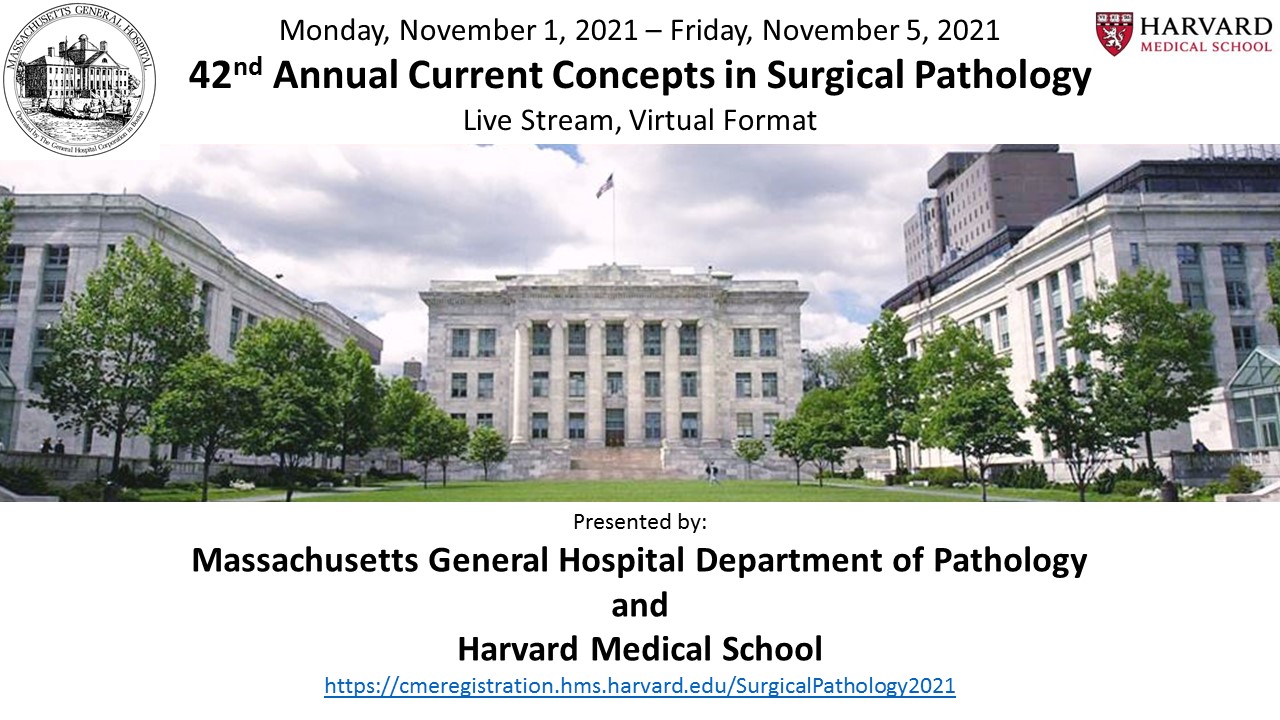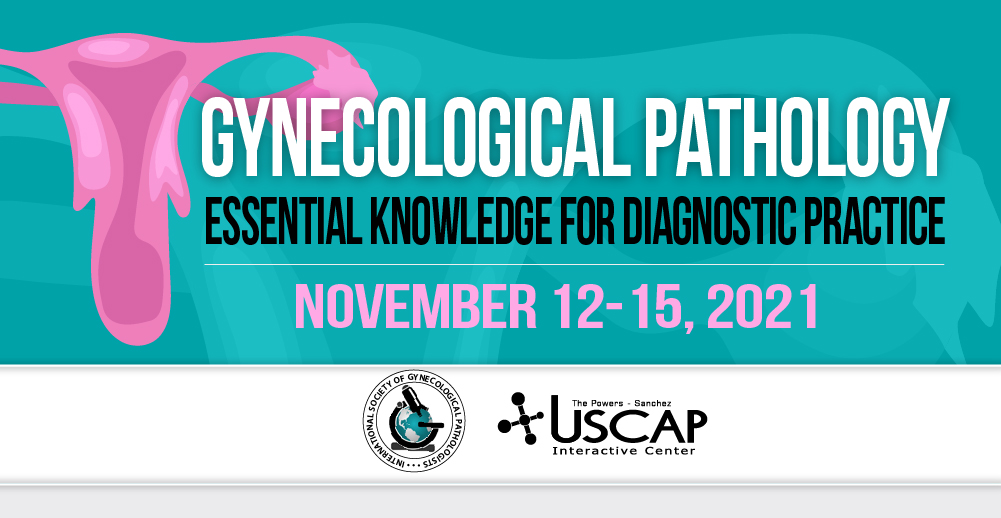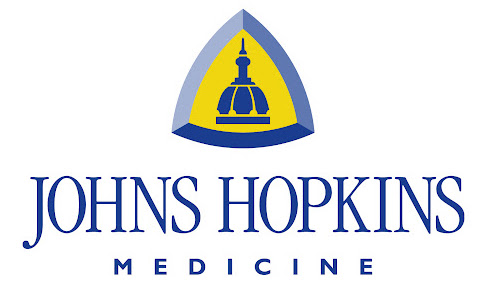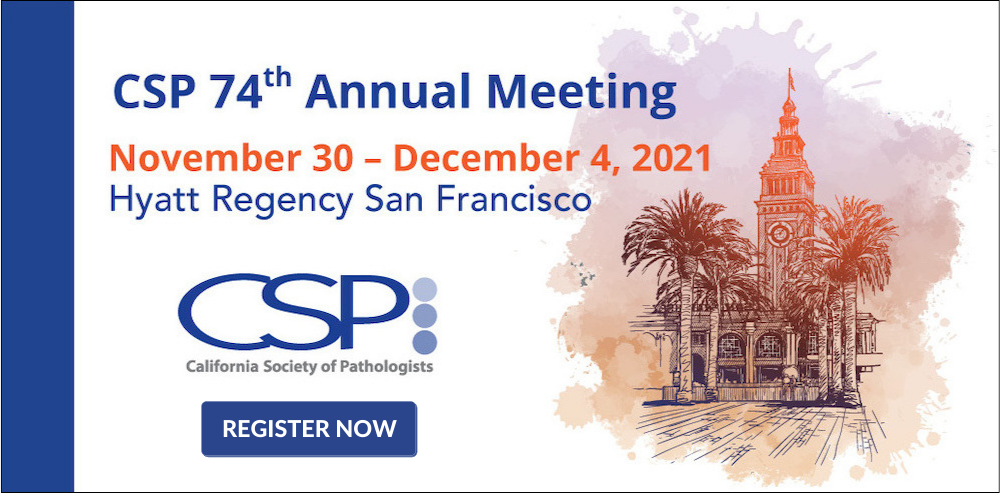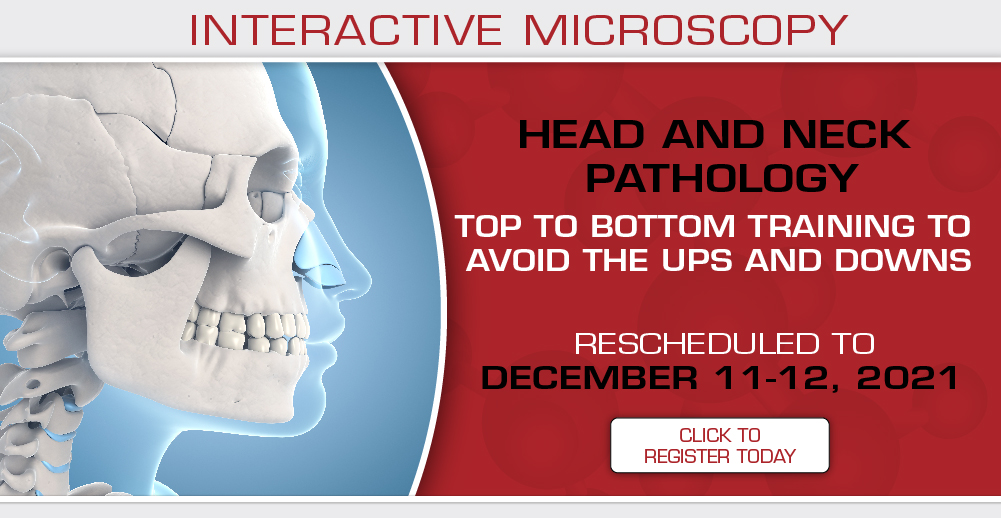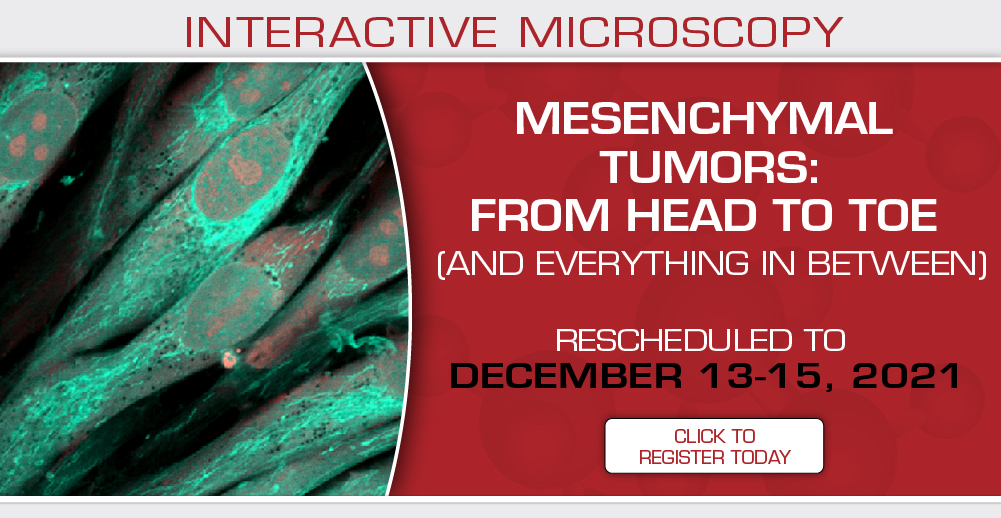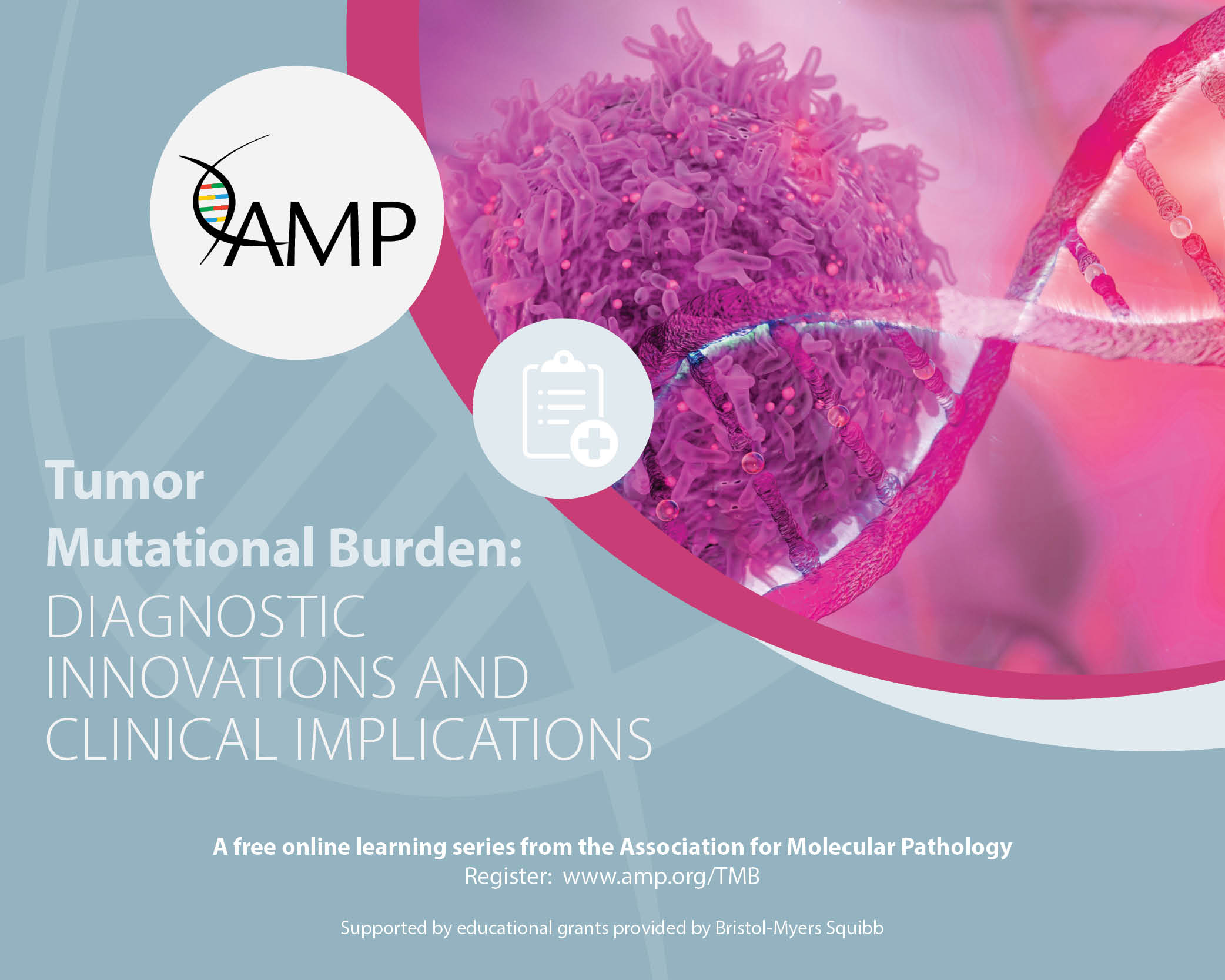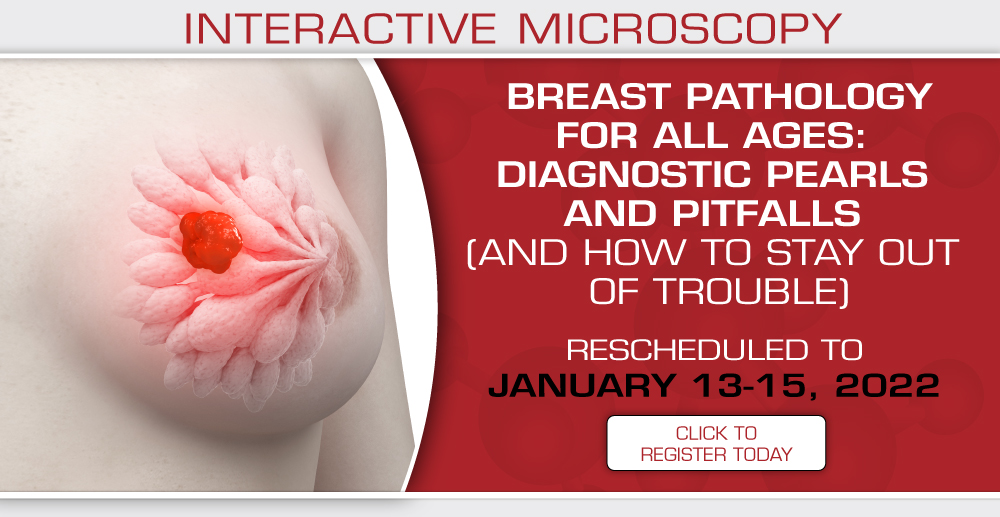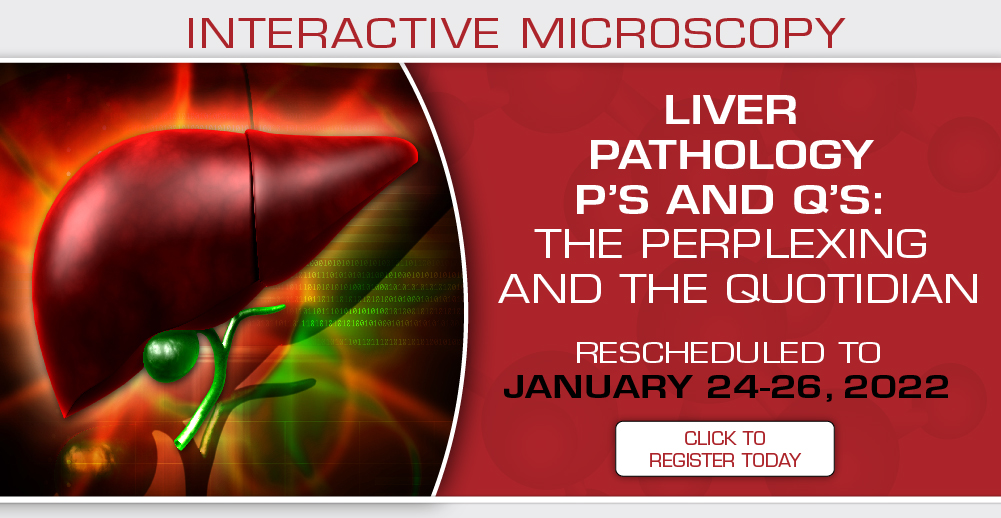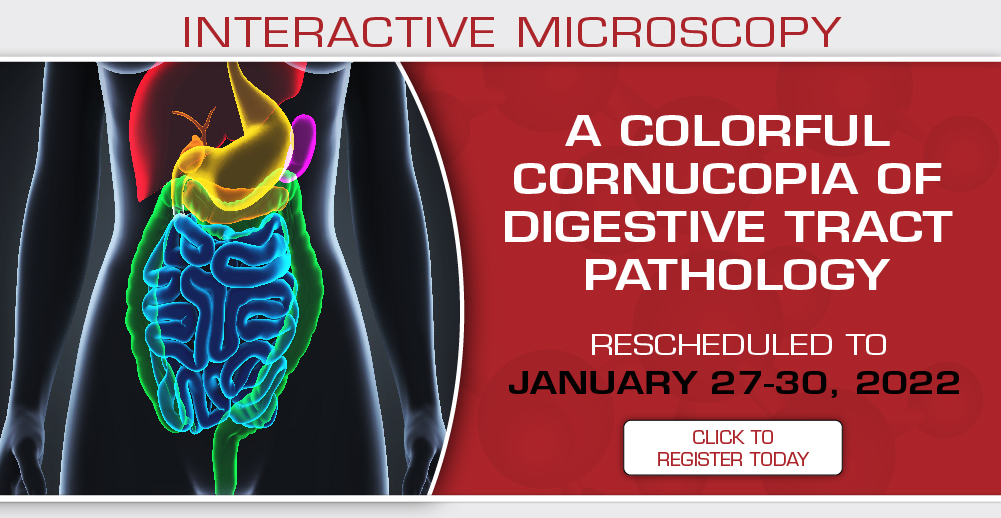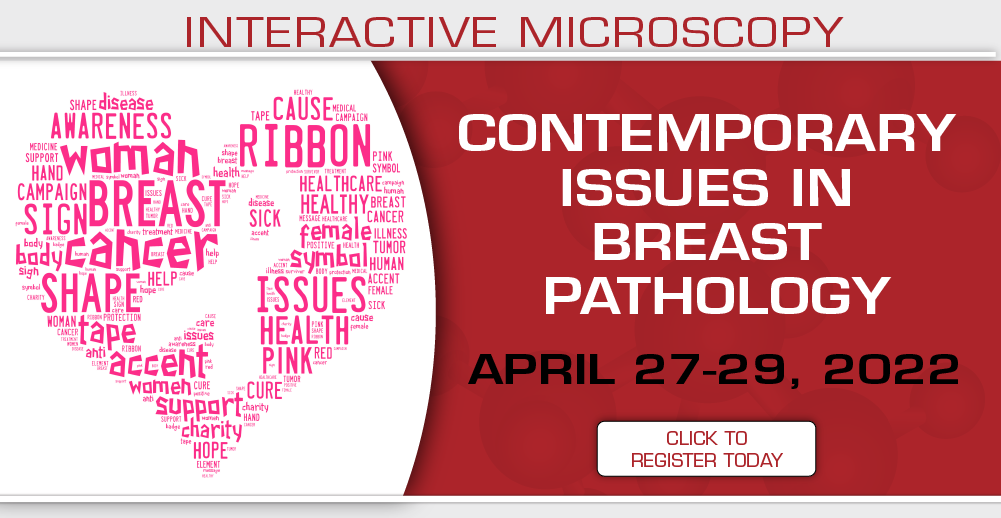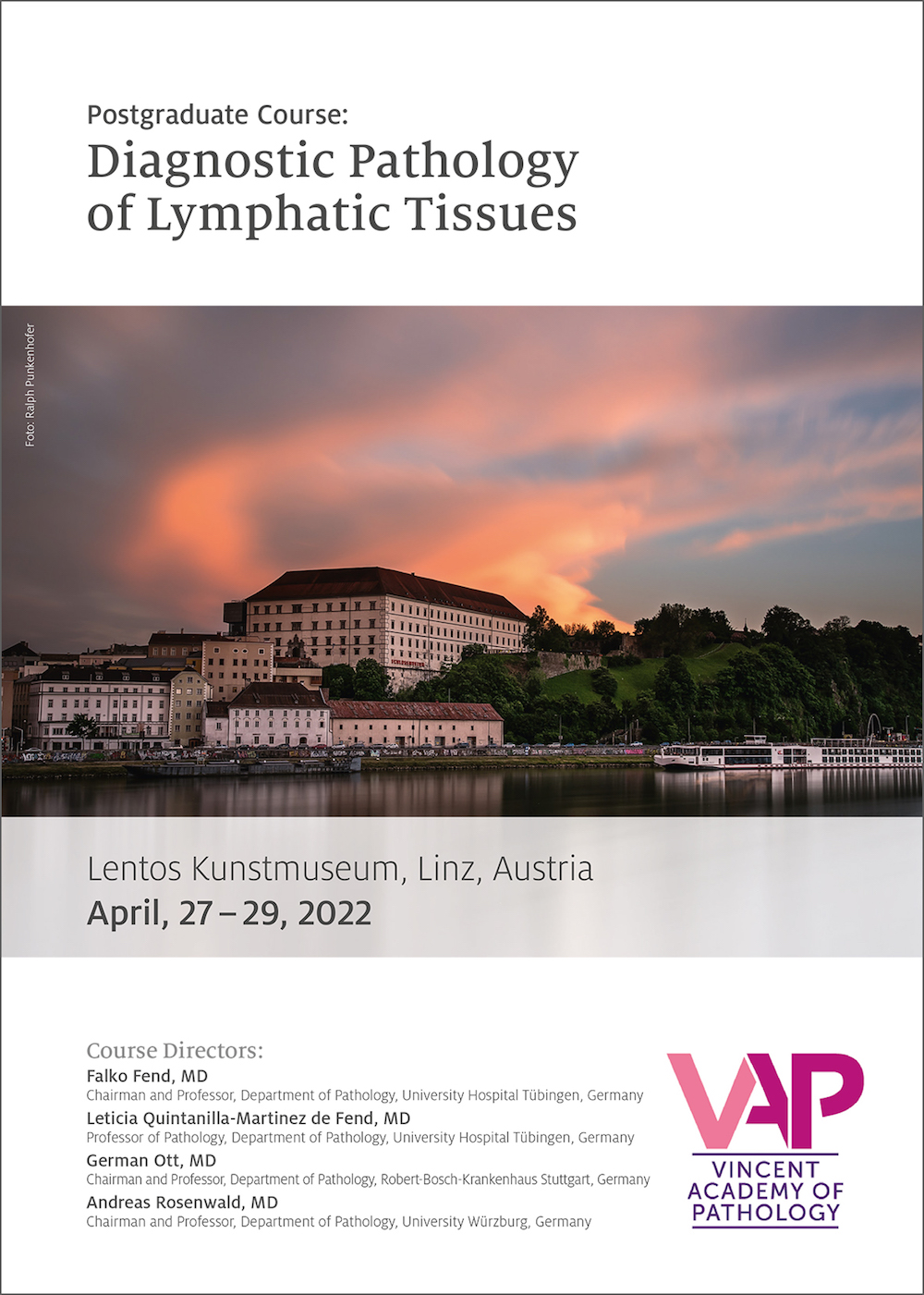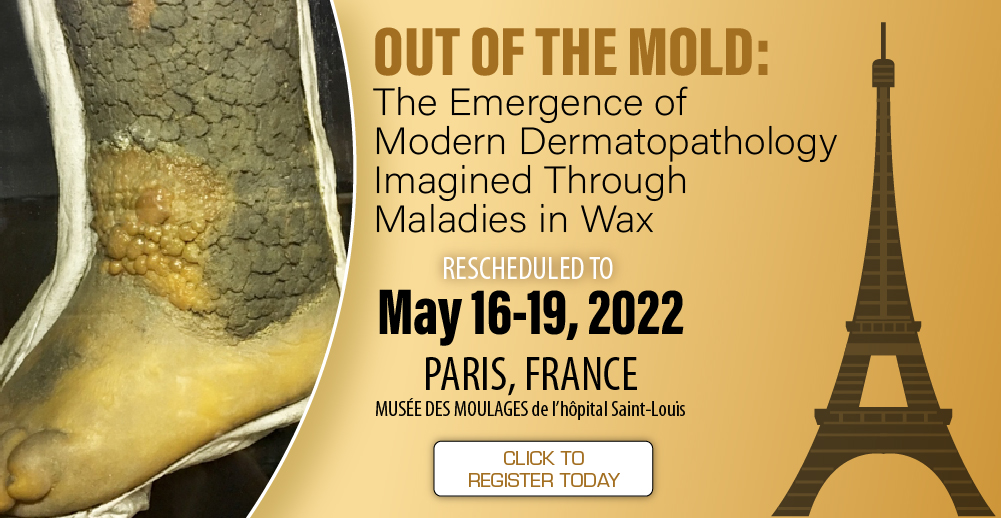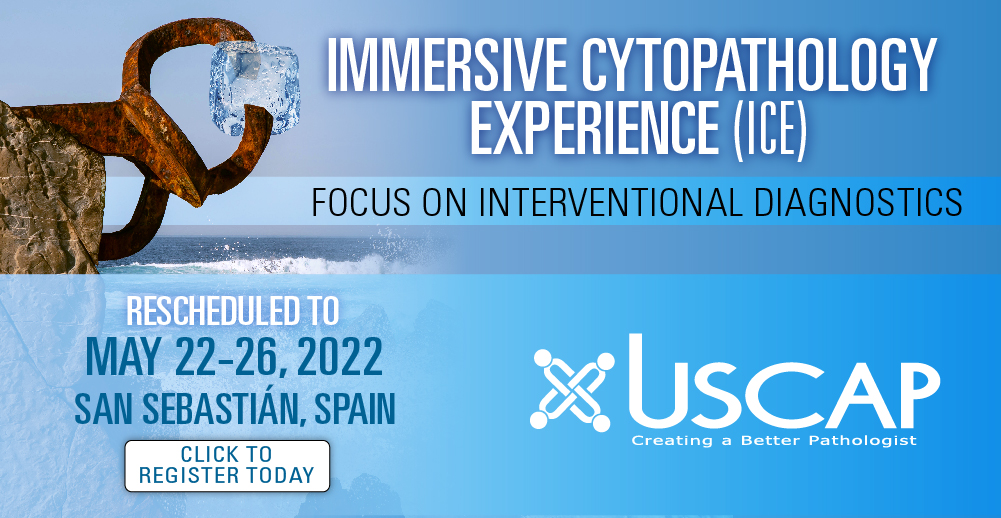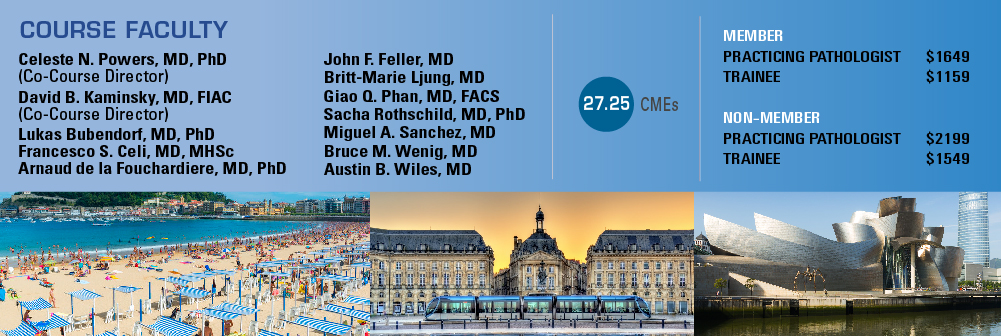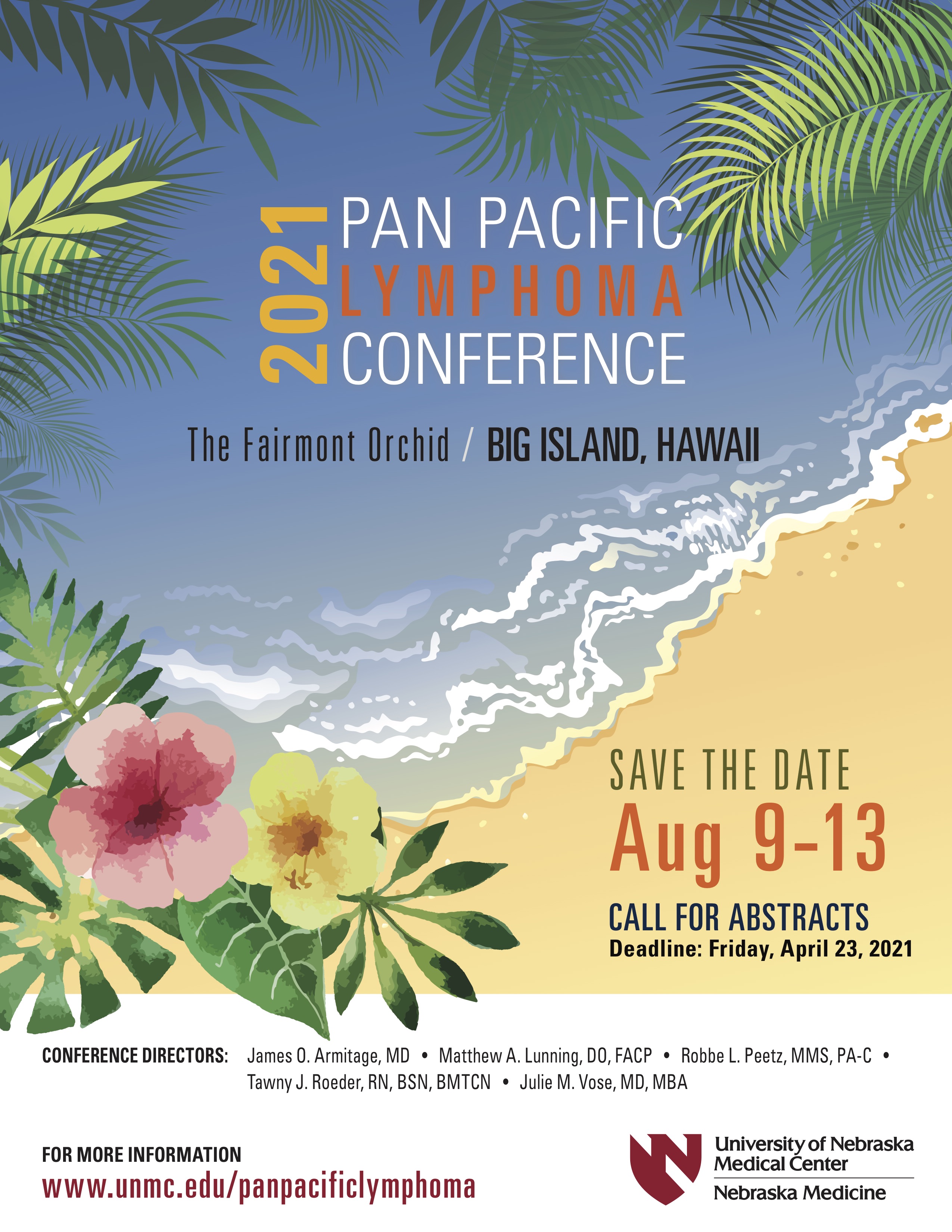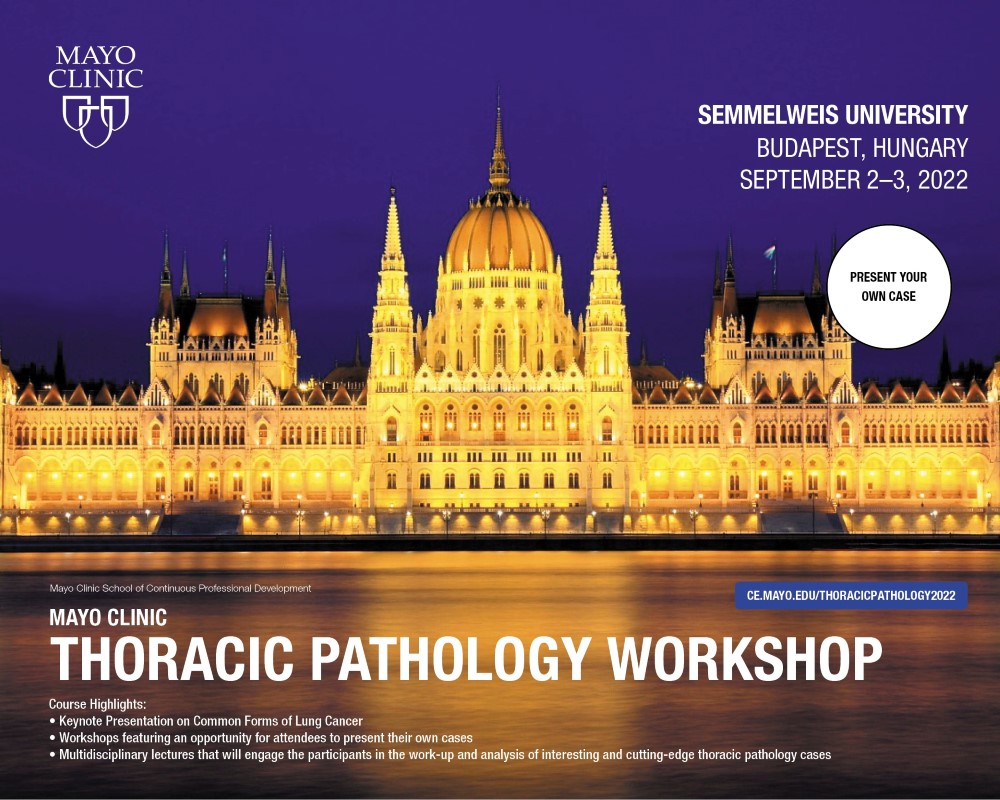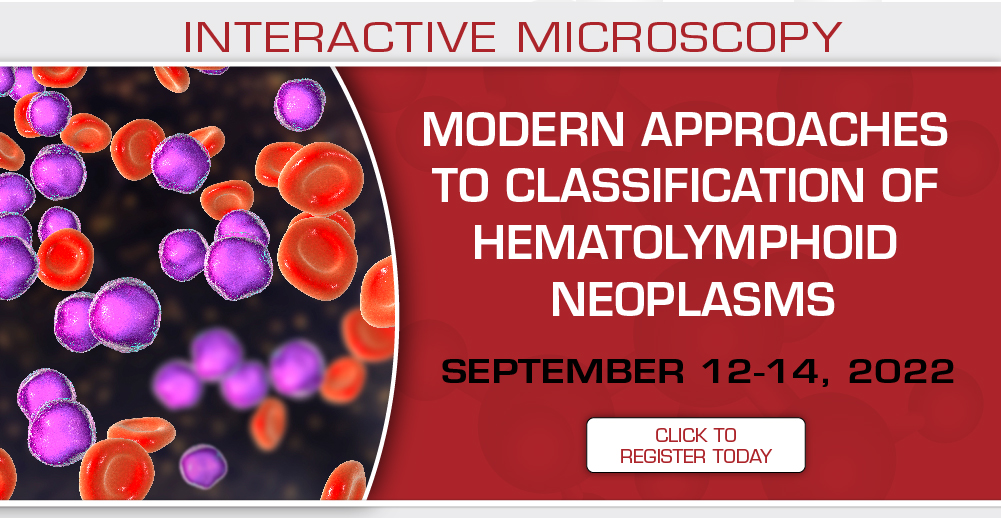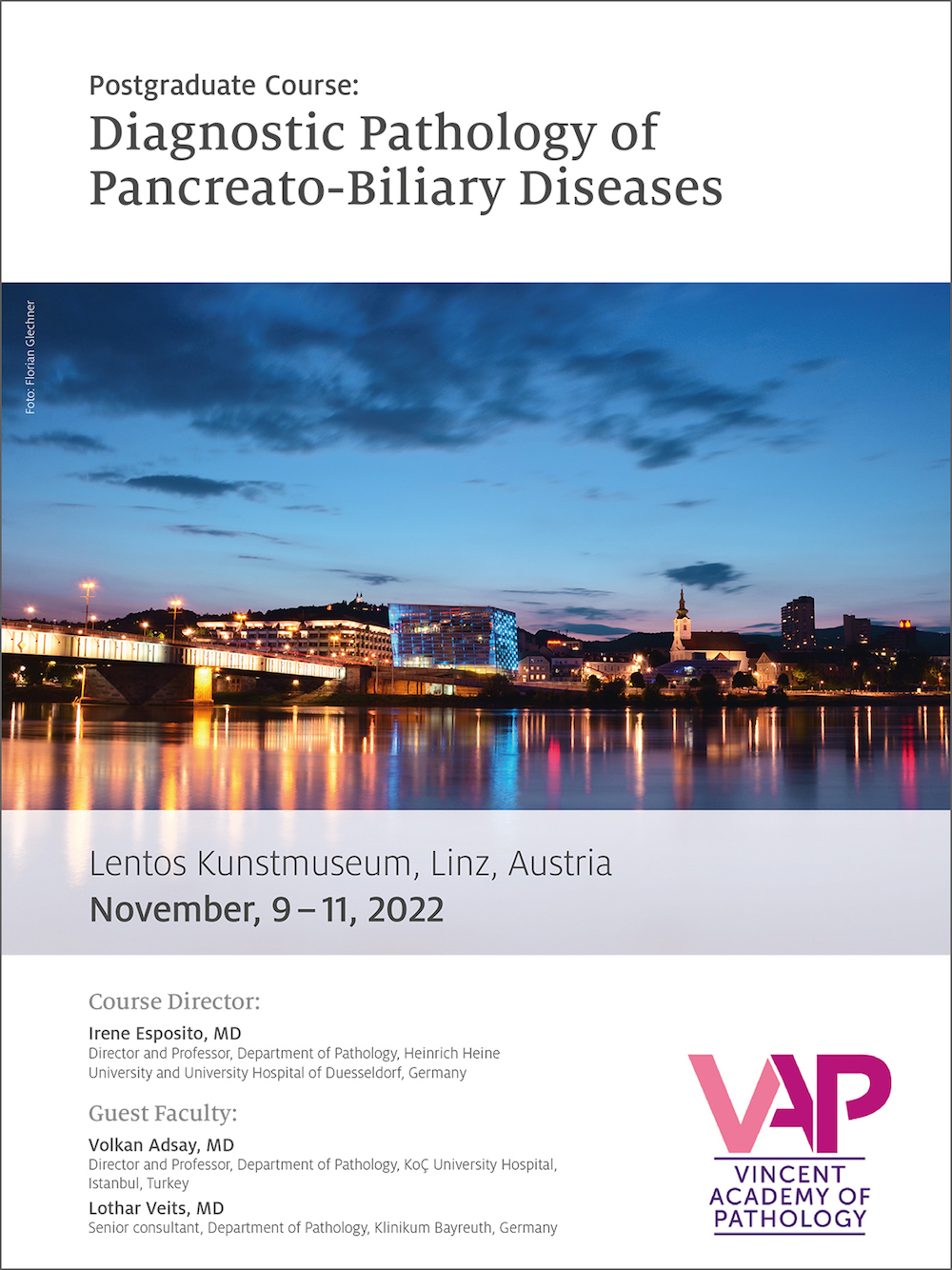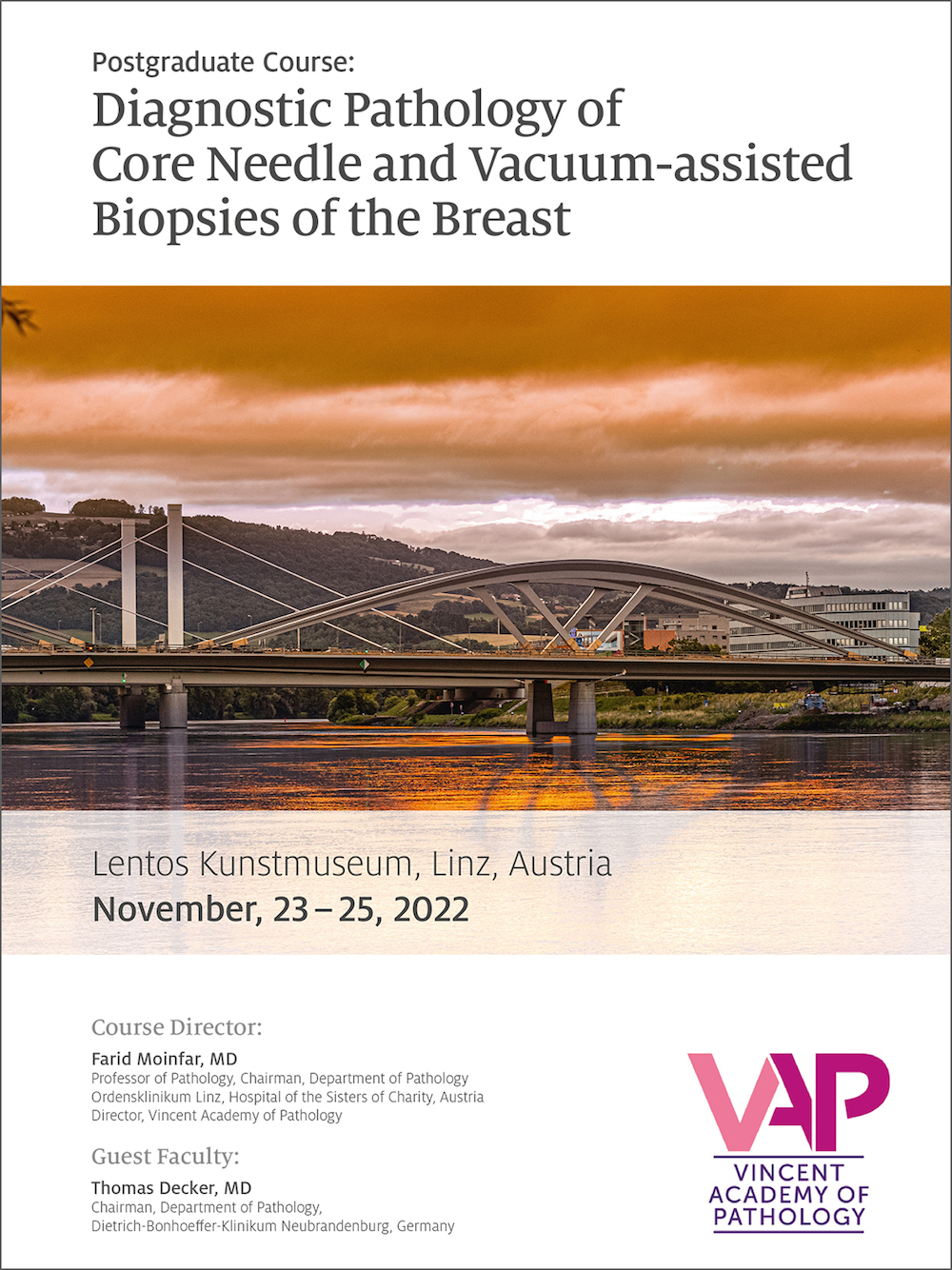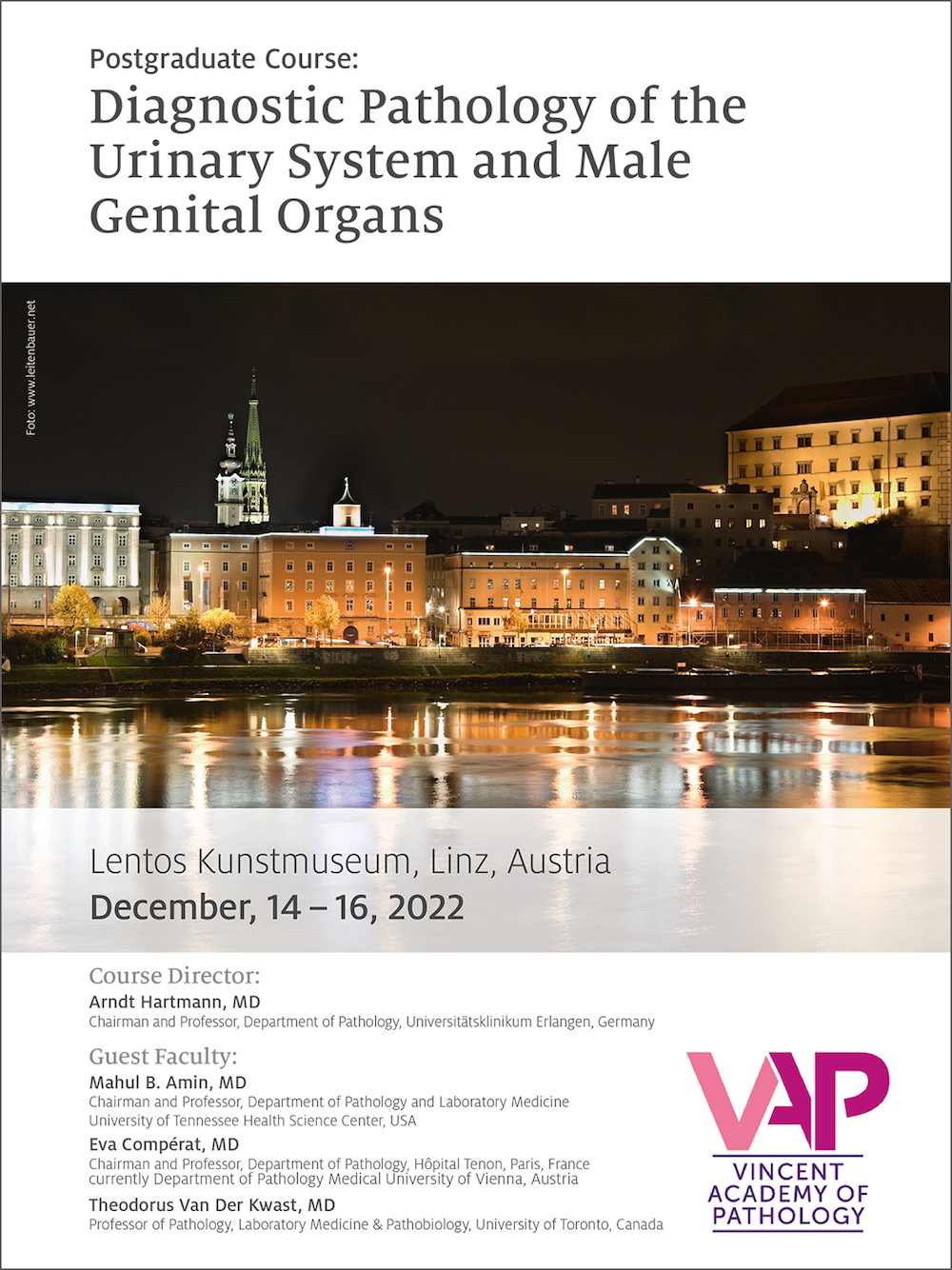Advertise your Pathology Conferences and Webinars with us!
To advertise on this popular page, email your text, graphics and contact information to Ads@PathologyOutlines.com. If no response within 1 business day, please resend and CC Rosie@PathologyOutlines.com. Ads are posted until the conference / webinar date. Email us once you have the date and we will create a Save the Date ad to use until you get your official ad; there is no additional charge for changes or for rescheduling due to the COVID-19 pandemic. After posting, we will send you a confirmation email and invoice; please use the link at the bottom of the invoice to pay. Prepayment may be required.
We have these options for posting:
(a) $700 for a highlighted listing (most of the ads below are highlighted listings) with graphics, text and links
(b) $400 for a one line listing (date, location, title and link)
(c) $1,000 to add a standard E-blast (example) or social media posting
(d) $750 to add a banner for one month on the Conferences page (top: 728x90, side: 300x250)
(e) Package of 6 highlighted listings plus one E-blast or social media posting plus an Organization listing, contact us
(f) Contact us for additional promotional packages at (248) 646-0325 or Ads@PathologyOutlines.com.
Links to all recent posts are included in an E-blast sent biweekly to 6,826 subscribers for no additional charge. Frequently asked questions Testimonials
Map of US with regions
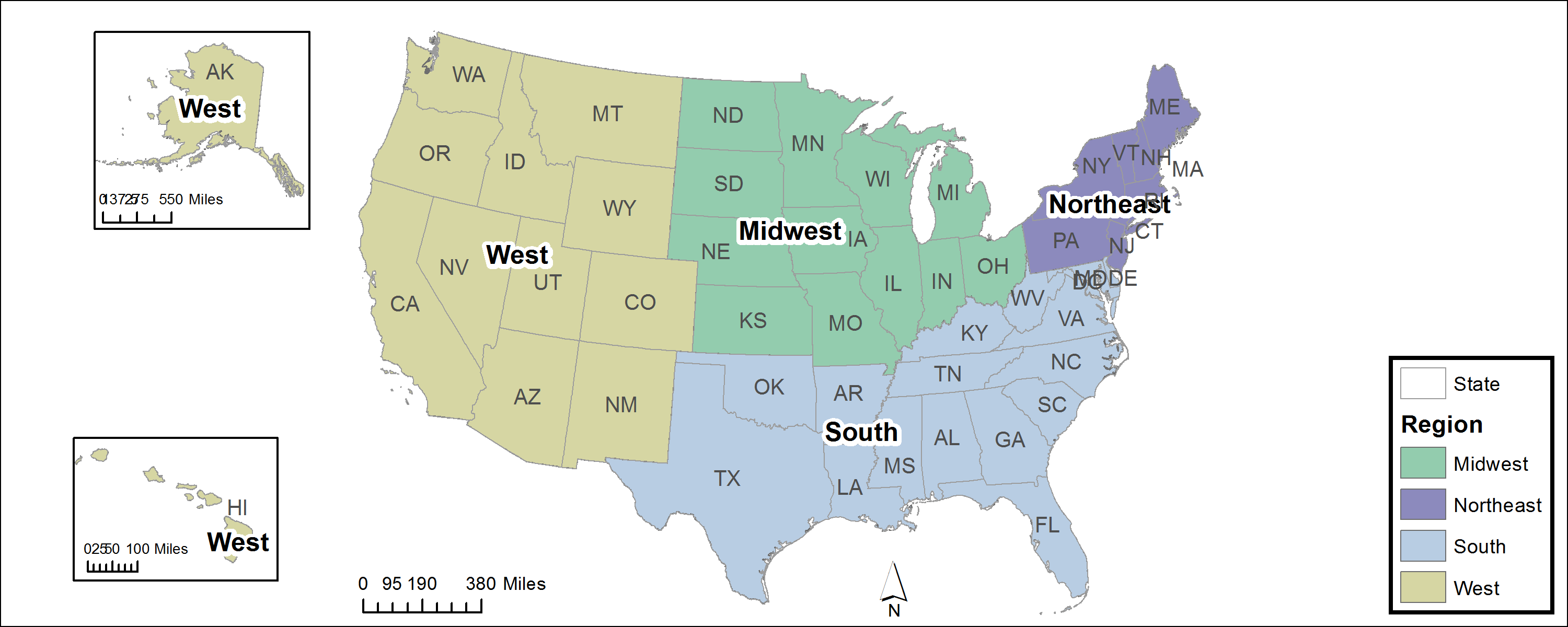
Start Date - 35 ads
The Temerty Faculty of Medicine at the University of Toronto Continuing Professional Development presents:
Pathology Update: Head and Neck Pathology – Practical Approach and Emerging Issues
Digital Conference – Online November 4-5, 2021
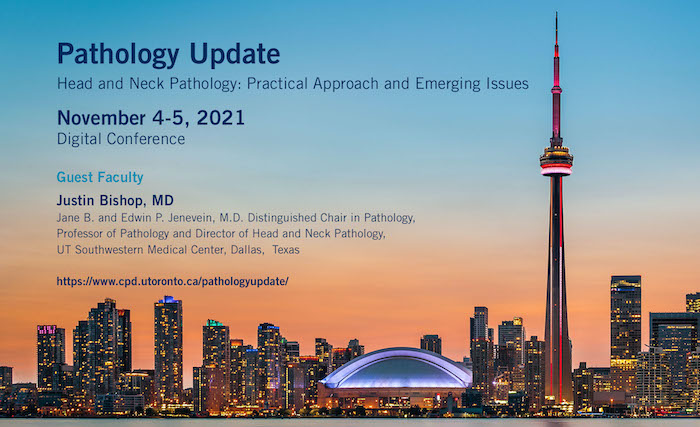
The 2021 digital conference aims to provide practical reviews of recently described entities and contemporary approaches to commonly encountered diagnostically challenging areas of head & neck pathology. In addition to expert faculty from the University of Toronto, Dr. Justin Bishop of the University of Texas – Southwestern, a world-renowned expert and a major contributor to the last WHO H&N classification of tumors, will provide details on emerging entities in head and neck pathology.
See the Conference Website for an agenda and more information, and register today!
[#11397]
USCAP Presents:
Gynecologic Pathology
Navigating Histologic Mimics and Other Diagnostic Pitfalls
Specimens from gynecologic organs constitute a significant component of most surgical pathology practices, which necessitates that practicing pathologists remain updated on advances in this dynamic, constantly evolving field. The diagnosis of gynecologic tract diseases can be challenging, and fraught with potential pitfalls that may have clinically significant consequences. Classical diagnostic issues in gynecologic pathology have revolved around the potential for non-neoplastic diseases, benign neoplasms, and malignancies to mimic each other, and for different histotypes of malignancies to display morphologic and/or immunophenotypic overlap. Within this context, pathologists must remain updated on newer approaches to disease classification, disease staging, and tumor grading. In this interactive microscopy course, the faculty will present cases wherein one lesion may potentially be mistaken for another due to varying degrees of morphologic and/or immunophenotypic overlap between them, or in which a cancer may be misclassified regarding grade, stage or primary site for a variety of reasons. The diverse case-mix will include those derived from both routine and consultation practices, reflecting the broad spectrum of gynecologic pathology. The presentation of cases will be clinically oriented, with an emphasis on day-to-day practical issues, and on accurately classifying each case within the context of a lesion-specific differential diagnosis
Course Location: Palm Springs, CA
Course Director: Pei Hui, MD, PhD
USCAP Presents:
Bone and Soft Tissue Pathology from Head to Toe: An Anatomical Approach
Bone and soft tissue pathology is challenging, even for experienced surgical pathologists. Mesenchymal tumors are rare, show a wide morphologic spectrum with significant histologic overlap between benign and malignant tumors and between mesenchymal and non-mesenchymal tumors. Moreover, the classification of bone and soft tissue tumors continues to evolve with rare "new" entities being described with ever-increasing frequency on the basis of distinctive molecular or histologic features. As the field grows more complex, surgical pathologists may struggle to stay up to date with new entities, changes in staging guidelines, recently developed immunohistochemical and molecular diagnostic tests, and may therefore struggle with accurate diagnosis. To help resolve these issues and update your current knowledge, USCAP is offering a unique mentoring opportunity with experienced educators who can help you focus on these updates through interactive dialogue and shared exemplary cases.
Course Location: Palm Springs, CA
Course Director: Elizabeth G. Demicco, MD, PhD
DIAGNOSTIC PATHOLOGY UPDATE 2021
USCAP is a transformative leader in pathology education, creating better pathologists with updates in relevant information requisite for their performance and professional growth. The Academy is sensitive to the personal and cultural needs of practicing pathologists by providing conferences that welcome them with their families to exotic destination venues at which they are enriched with new knowledge and unusual experiences. The 2021 Diagnostic Pathology Update course combines expert subspecialized, academic faculty with exposure to ocean and rain forests symbolic of the dichotomy that is Costa Rica. From zip-lining to surfing, this tropical paradise brings pathologists into contact with the cuisine, agriculture, art and geography of a unique country that values education as its primary core value. Costa Rica has eliminated its standing army to use the savings from defense to improve education, health care and a durable social safety net.
USCAP is changing not only how we learn, but where we learn by re-imagining the learning environment and continuously elevating the quality of content. Experience top educators. Refine cognitive skills. Hold coffee beans in your hand. Inhale vapor from raging waterfalls. Witness rainbows in the evanescent colors of iguana skins. Feel sunsets scalding your memory.
Course Director: Rhonda K.
Yantiss, MD & Jason L. Hornick, MD, PhD
USCAP Presents:
Head and Neck Pathology: Top to Bottom Training to Avoid the Ups and Downs
Head and neck pathology represents a significant portion of surgical pathology practice. Studies have shown this area to be particularly treacherous to community pathologists with up to 53% of diagnoses changed (including 7% with major changes) upon second review at tertiary care hospitals (Kronz and Westra, Curr Opin Otolaryngol Head Neck Surgery 2005; 13:81-4).
In recent years there have been numerous developments in head and neck pathology, further complicating this inherent difficulty. Novel entities have been described, pathognomonic molecular alterations have been uncovered, and major shifts in diagnostic classification schemes have been proposed. Many of these concepts were incorporated into the newest editions of the WHO Classifications for Head and Neck and Endocrine Tumors, both of which were published recently.
Taken together, it is difficult for pathologists to stay current and maintain proficiency in head and neck pathology without supplemental training and education. This course is a terrific opportunity to refine your diagnostic skills in a uniquely personal mentoring environment with energetic pathologists whose keen eyes, diagnostic acumen, and a modern approach will create an indelible impression.
This course is designed for general pathologists, practicing surgical pathologists, senior residents and pathologists with special interest in head and neck pathology.
Course Location: Palm Springs, CA
Course Director:
Justin Bishop, MD
USCAP Presents:
Mesenchymal Tumors:
From Head to Toe (and Everything in Between)
Mesenchymal tumors are inherently diagnostically challenging, but a significant practice gap in their interpretation has developed as new entities and genetic abnormalities have emerged. Diagnostic challenges are associated with distinguishing benign spindle cell proliferations from high grade sarcoma due to histologic and immunohistochemical overlap. In addition to benign and malignant categories, contemporary classification of mesenchymal neoplasms emphasizes lesions with intermediate biologic potential, including those that are locally aggressive or rarely metastasize. There are circumstances in which pathologists can render only descriptive diagnoses without precise classification. New discoveries in molecular genetics have clarified some of these problematic lesions. Furthermore, there are newly described entities that practicing pathologists should be aware of so that tumors are appropriately diagnosed and optimally treated. This course, presented by expert mentors and educators, explores a comprehensive panorama of lesions and anatomic sites.
Course Location: Palm Springs, CA
Course Director: Andre Pinto, MD
USCAP Presents:
Breast Pathology for All Ages:
Diagnostic Pearls and Pitfalls (And How to Stay Out of Trouble)
Based on multi-institutional practices handling large volumes of breast pathology cases at established cancer centers and cumulative consultation cases, this expert faculty has identified areas that pose diagnostic and interpretative challenges in recurrent problematic areas deserving attention: intraductal epithelial proliferations and microinvasive carcinoma, lobular neoplasia including LCIS variants, papillary lesions, and benign vs malignant spindle cell lesions. The interpretation of immunohistochemical stains (IHC) with focus on predictive markers can also be challenging. This interactive microscopy course is designed to illustrate distinct challenging entities and problematic issues, with practical approaches to their resolution in real time, in the context of intimate mentoring.
Course Location: Palm Springs, CA
Course Director:
Edi Brogi, MD, PhD
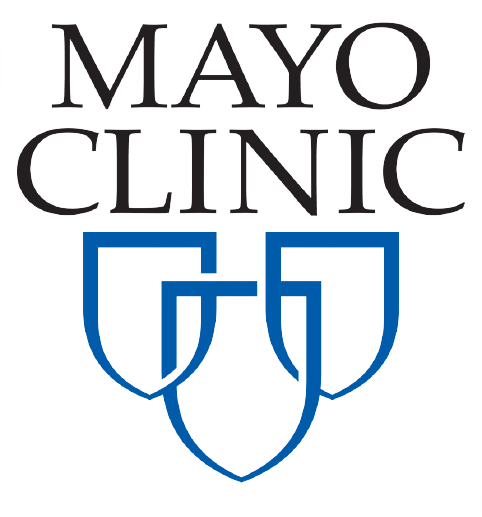
Thursday – Saturday, January 20-22, 2022
Mayo Clinic Franke Education Center
5777 East Mayo Boulevard
Phoenix, AZ 85054
Mayo Clinic Pathology Update 2022
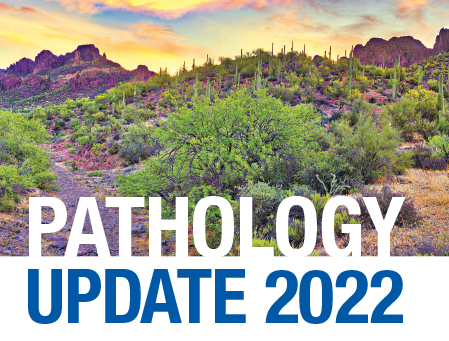
Course website/registration:
ce.mayo.edu/pathupdate2022
Course Highlights:
- World-renowned pathologists, Dr. Steven Billings, expert in dermatopathology and soft tissue pathology, Dr. Teri Longacre, expert in gynecologic and soft tissue pathology, and Dr. Fabiola Medeiros, expert in gynecology, placental and perinatal pathology, join an elite roster of speakers for this sixth annual 2.5-day general surgical pathology course.
- Covering a broad range of subjects in diagnostic pathology, the central themes for this year's course include updates in uterine mesenchymal neoplasms and extrauterine serous neoplasms as well as recent developments in inflammatory diseases of the skin and cutaneous soft tissue lesions. Additional selected topics in cytopathology, thoracic pathology, and hematopathology will be discussed.
- Presentations will be geared towards the general surgical pathologist to include common diagnostic challenges, need-to-know updates, and emerging issues. Attendee participation is encouraged via audience response system and engaging case reviews including interactive sessions using digital pathology.
Course Directors:
Yasmeen M. Butt, M.D.
Rish K. Pai, M.D., Ph.D.
Alessandra Schmitt, M.D.
Target Audience:
This course is designed for pathologists, pathologist assistants, pathology fellows and residents, and allied health staff with an interest in diagnostic pathology as well as surgeons and oncologists with an interest in new pathologic staging criteria.
[#11240]
USCAP Presents:
Liver Pathology P’s and Q’s: The Perplexing and the Quotidian
This comprehensive approach to pathology of the liver, gallbladder and biliary tree is designed for junior and experienced pathologists who encounter these specimens in daily practice. Medical advances in management of patients with liver disease have dramatically changed the histologic patterns encountered in liver biopsies which are increasingly obtained from patients with multiple medical problems who take multiple medications. Classification of tumors of the liver, biliary tree and gallbladder has also become increasingly complex.
This course is intended to provide clarity on the common and uncommon patterns of injury seen in liver biopsies. Usual and unusual causes of acute hepatitis, chronic hepatitis and cholestatic liver disease will be discussed. Tools to solve challenging metabolic and pediatric liver disease will be provided. Guidance will be given on how to interpret liver biopsies from patients with complex systemic diseases. A substantial portion of the course will address how to approach tumors involving the liver, biliary tree and gallbladder. Correct classification requires recognition of specific morphologic features, judicious use of immunohistochemistry and selective application of molecular diagnostics.
This superb faculty will synthesize and deliver this information in the context of intimate mentoring and personalized attention to detail.
Course Location: Palm Springs, CA
Course Director: Rish K. Pai, MD, PhD
USCAP Presents:
A Colorful Cornucopia of Digestive Tract Pathology
The gastrointestinal tract remains one of the most common sources for surgical pathology specimens. As a result, the difficulties and gray areas in this subspecialty are encountered quite often by pathologists each day. The existence of interobserver variability in many gastrointestinal diagnoses compounds this issue. In contrast, the liver and pancreas give rise to a broad spectrum of uncommon disease entities, making it difficult for pathologists who don’t specialize in these organs to gain diagnostic proficiency. Finally, the WHO recently released the newest edition of their Digestive Tract Tumours blue book which contains key updates and subtle changes that may be unfamiliar to many practicing pathologists.
This course will tackle the professional practice gaps that exist in gastrointestinal pathology, focusing on uncommon findings, obfuscated differential diagnoses, new entities and changes to existing entities.
It is a perfect complement to the preceding course, Liver Pathology’s P’s and Q’s: The Perplexing and the Quotidian (January 25-27, 2021).
Course Location: Palm Springs, CA
Course Director: Rish K. Pai, MD, PhD
USCAP Presents:
THORAX DECONSTRUCTED –
Experts’ Guide to What Can Go Wrong Inside the Chest
Pathologists are generally unfamiliar with a variety of entities in lung, pleural, cardiac and mediastinal pathology, leading to diagnostic errors and creating practice gaps requiring attention. The panorama covered in this interactive microscopy course includes interstitial lung disease, lung infections, pulmonary vasculitis, mesothelial proliferations, mediastinal neoplasia, lung allograft rejection and mimics, heart transplant rejection and distinction from mimics, best practices for optimal triage of lung cancer samples for molecular testing, the cytology of pleural effusions, criteria for aortic vasculitis and other large vessel pathology, recognition of heart valvular pathology, criteria for diagnosis of giant cell arteritis, native heart biopsy interpretation and thoracic soft tissue neoplasms. This faculty ensemble has the professional experience to improve your practice with confidence. You will see cases that make an indelible impression. Breathe easy: this is USCAP, at the heart of education.
Course Location: Palm Springs, CA
Course Directors:
Henry D. Tazelaar, MD & Andrew Churg, MD
USCAP Presents:
Challenges in Hematopathology
Distinguishing between reactive and neoplastic proliferations in blood, bone marrow, lymph nodes, spleen and extra-nodal hematopoietic tissues, as well as accurately classifying neoplasms once they are identified, are essential for appropriate patient care. Pathologists struggle with differentiating reactive from neoplastic conditions in these organs, as well as in properly classifying hematopoietic neoplasms once they are diagnosed. This highly respected expert faculty will provide a unique mentoring experience in an intimate study environment at USCAP’s Interactive Learning Center. They intend to cover diagnostic criteria for new entities in the 2016 WHO Classification of Hematopoietic and Lymphoid Neoplasms and provide useful morphologic clues and ancillary techniques to help you distinguish neoplastic and reactive conditions..
Course Location: Palm Springs, CA
Course Director: Daniel A. Arber, MD
USCAP Presents:
Contemporary Issues in Breast Pathology
This course will provide a comprehensive review and update of the pathologic diagnosis and clinical significance of benign, in situ and malignant lesions of the breast identified in surgical specimens and core needle biopsies. The most current adjunctive immunohistochemical and molecular studies to assist in the diagnosis and classification of benign and malignant breast lesions and to guide patient management will be emphasized. The course format will feature a combination of lectures, interactive microscopy sessions, and digital slide review and there will be ample opportunity to interact with the faculty.
Course Location: Palm Springs, CA
Course Director:
Stuart J. Schnitt, MD
USCAP
Presents: USCAP is transforming not only how we learn, but where we learn. This course will be taught by a world class faculty in one of the most historically important settings in dermatopathology, La Musée des Moulages, the dermatology wax works museum of Hôpital Saint Louis. Dynamic lectures will provide panoramic insight into relevant aspects of dermatopathology including inflammatory dermatoses, melanocytic tumors, cutaneous lymphomas, soft tissue tumors and adnexal tumors. In addition to learning cutting-edge dermatopathology, you will immerse yourselves in the medical history of dermatology and dermatopathology in one of the most important archives of cutaneous diseases. The charm and glamour of Paris with its varied culinary, artistic and architectural allures will make your learning experience even more significant!
OUT OF THE MOLD:
The Emergence of Modern Dermatopathology Imagined Through Maladies in Wax
Course Director: Steven D. Billings, MD
Cytopathology as a discipline has been re-imagined by the convergence of minimally invasive diagnostic and therapeutic techniques, refinements in imaging and guided biopsies, molecular testing and whole genome sequencing, the emergence of targeted therapies, and the awakening of pathologists to their critical role in patient care, safety and outcomes. A new force in medicine is emerging: pathologists are critical members of the health care team and patients are at the center of their concerns and efforts.
Immersive Cytopathology Experience (ICE) has been redesigned for presentation at a fabulous venue in San Sebastian, Spain, with change in emphasis to interventional diagnostics. There is monumental value in the intersection of case-based learning, multidisciplinary collaborative interaction of care teams, clinical correlations, the partnership with advanced imaging, and awareness of communications, empathy and patient safety.
The schedule accommodates time for you to experience San Sebastian, and nearby Bilbao to visit the Guggenheim Museum designed by Frank Gehry. The culinary scene is unparalleled, and the geography is magnificent.
USCAP is transforming not only how we learn but where we learn. Pathologists can benefit from superb teaching with invaluable exposure to cross-cultural experiences.
Classification schemes, the molecular and genetic basis of head and neck disease, procedural approaches to specimen acquisition and processing, empathetic communication, quality and patient safety, and measuring the non-clinical performance of the academic pathologist contribute texture and depth to this learning experience.
The schedule accommodates time for you to experience ICELAND, from The Blue Lagoon to the Northern Lights and locations where Game of Thrones is filmed.
USCAP is transforming how we learn and where we learn. From a 15th century convent in Florence to the Harpa Concert Hall and Conference Centre in Iceland, learners “come from away” for their unique and enduring experience.
USCAP Presents:
Modern Approaches to Classification of Hematolymphoid Neoplasms
Accurate diagnosis in hematopathology relies heavily on the complex integration of data from clinical presentation, conventional microscopy, immunohistochemistry, flow cytometry, and molecular and cytogenetic analyses. Diagnosis is often complicated by the fact that clinically relevant disease subsets can share overlapping diagnostic features, and both baseline appreciation for disease spectrum and appropriate application/interpretation of ancillary testing is lacking. This gap can lead to real and immediate clinical consequences for therapeutic selection and overall patient management.
While in-house testing for the vast array of available diagnostic, prognostic and predictive markers is not possible in every setting or practice, awareness of their applicability and impact on patient care is the responsibility of both the pathologist and treating clinician. This is particularly true in an era when patients are increasingly knowledgeable about genomic and proteomic analyses and the studies are easily accessible. Approaching this target by strengthening baseline knowledge and skill in application empowers the pathologist as a consultant to the clinical care team.
This superb faculty will synthesize and deliver this strategic philosophy in the context of intimate mentoring and personalized attention to detail.
Course Location: Palm Springs, CA
Course Directors: Olga K. Weinberg, MD and Yuri Fedoriw, MD





